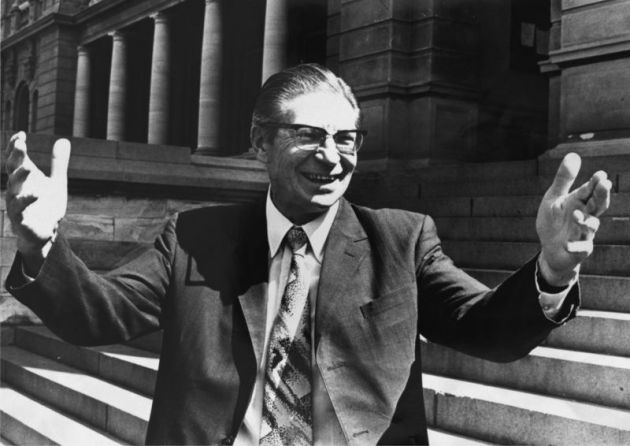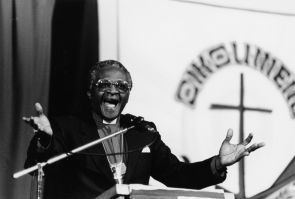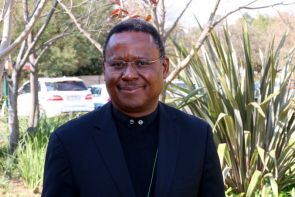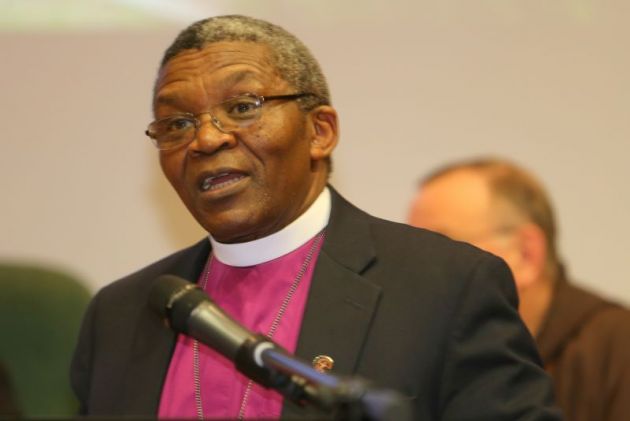Learning from the past: The day a 'Christian government' turned on an ecumenical organization

BERLIN - The general secretary of the South African Council of Churches (SACC) said recently that his country today is where it was in the final years of apartheid.
The SACC's Bishop Malusi Mpumlwana wrote in The Daily Maverick on Oct. 13, 40 years after the banning of 18 Black Consciousness organizations and the ecumenical Christian Institute.
"As a nation today, we are where the apartheid regime was in the late 1980s, a junk economy, a securocratic State, assassinations by the day, social unrest and loss of public trust in the government.
"It is a government that says in true Botha-Vorster language that priests must confine themselves to the altars and pulpits of their churches and not engage on matters of life that are governed by politicians. Déjà vu," rued Bishop Malusi.
October 19, 1977 or Black Wednesday, marks the day, when those 18 Black Consciousness organizations, two black newspapers were closed and an editor banned by the government along with the white editor of the Daily Dispatch.
BEYERS NAUDE
The one organization that did not seem to quite fit the bill was the multi-racial Christian Institute, an ecumenical organization founded by Rev. Beyers Naudé, vocal in its anti-apartheid theological stance.
Its founder Naudé had a five-year banning order slapped on him. This was a type of house arrest effectively prohibiting him from leaving Johannesburg, attending any gathering where more than one person was present. Under it he had to report to a designated police station once a week. He was only allowed to attend church services.
The bannings came 16 months after black youths had risen in the townships against the apartheid government.
Black Wednesday became a setback from which the Black Consciousness movement never recovered.
South Africa's apartheid government constantly proclaimed its ideology as "Christian-National" and for the first time it acted against a Christian organization.
In the sixties many anti-apartheid groups had been banned.
Naudé a former moderator of the white Southern Transvaal white Dutch Reformed Church left the church in 1963.
"In two memorable services... he announced his decision and delivered his farewell sermon on the theme 'We must show greater loyalty to God than to man,'" a member of the congregation Hennie Serfontein remembered.
He also put documents related to the top-secret power behind the throne, the Broederbond, into the hands of journalists Charles Bloomberg and Serfontein, leading to exposé after exposé.
Until 1977 the Christian Institute funded by churches in The Netherlands, Scandinavia, Germany and Switzerland played an important role in bundling the ecumenical power of the churches in South Africa.
In this role it was ahead of Europe at the time. In the seventies it started to pave the way for interfaith cooperation against apartheid in South Africa.
Shortly after setting up the Christian Institute, Naudé in 1965 in its monthly newsletter Pro Veritate started to make the case that the time for a confessing church had arrived in South Africa, based on a German model under Nazi Germany.
Although the banning also meant that Naudé was not allowed to give interviews or be quoted, he continued to do so for foreign journalists. He also set up a network to help support families of black detainees using his extensive international contacts.
In 1982 while still banned he played a key role behind the scenes in getting the World Alliance of Reformed Churches declare apartheid a heresy.
In a letter address to the WARC President James McCord and smuggled out of South Africa and read to the assembly, Naudé accused the WARC of being too reticent in dealing with the whites-only Afrikaans churches.
He argued for a "status confessionis," which was overwhelmingly accepted and the white churches were suspended from WARC.
In 1982 Naudé's banning order was renewed for another five years and then surprisingly lifted in late 1984.
DESMOND TUTU
The following year he took over as the SACC general-secretary from Archbishop Desmond Tutu.
Under Tutu's tenure as the first black general secretary from 1978 onwards, the SACC had 20 member churches, representing about half of the South African population.
Under Naudé's leadership from 1985-1988, the SACC became the voice of the opposition and South Africa had a full-on Church-State conflict as anti-apartheid meeting were held in churches.

It was also a time that two States of Emergency that banned virtually all opposition to apartheid.
But after 1994 when Nelson Mandela became president the churches were coopted into governmental support and fell silent for nearly two decades.
Writing in the Daily Maverick last week Bishop Malusi explained that it is five months since a report called the Unburdening Panel was released on State capture of South Africa by foreigners with massive sums of money.
"This in simple terms amounts to the power elite taking over the governmental systems and is morally and constitutionally wrong," said the bishop.
Drawing on the past he continued: "Before 1994, not many professional politicians were the hope of a South Africa for all. It was trade unions and civil society organizations, and religious organizations, especially the SACC, the Muslim Judicial Council and Jews for Justice, that stood up as organized structures of apartheid resistance. That is the other story of our hope."

South Africa's churches are again under government attack. In August Rev. Frank Chikane, Naudé's successor as SACC general-secretary before he went into government post-1994, said, "The president attacks me in ANC NEC meetings because I turn the churches against him."
Chikane is once more a clergyman and is now the vice-president of the SACC. Bishop Mpumlwana issued an appeal, "The Christian churches have a duty, and so have all other religious faiths, to generate hope for the people in despair, and a sense of the positive alternative.
"We must ensure that never again shall the country surrender public values to the whims of politicians – regardless of party or the leadership thereof."
